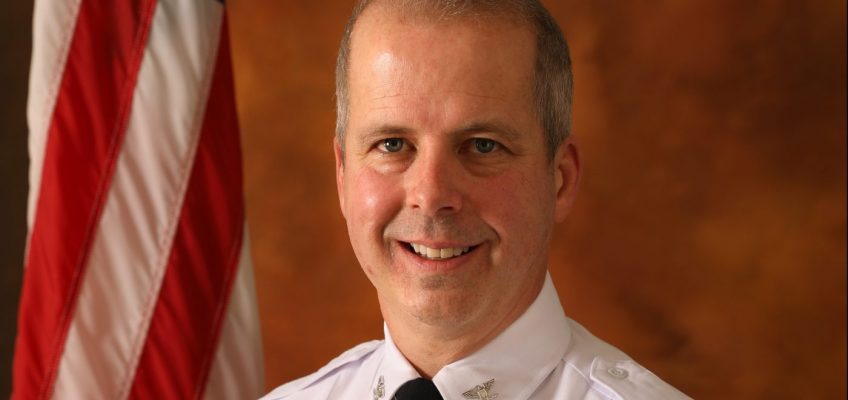Founded in 1858, the Hastings Police Department will soon bid farewell to its 56th chief of police.
Hastings Police Chief David D. Wilske announced his plans to retire after working nearly 30 years in law enforcement. Wilske’s retirement will be effective March 31, 2026.
(Courtesy of the City of Hastings)
Hastings Police Chief David D. Wilske has announced his plans to retire after working nearly 30 years in law enforcement. Wilske’s retirement will be effective March 31, 2026, according to a city news release.
“I’ve said this many times before — I wish I had started my law enforcement career with the Hastings Police Department,” said Wilske, who first joined the department in May 2017, in the release. “The community support, the professionalism of our officers and the partnerships we’ve built have made this an incredibly rewarding experience.”
Prior to his time in Hastings, Wilske spent 20 years with the University of Minnesota police, working his way up from patrol officer to operations lieutenant.
Wilske started in Hastings as deputy chief, overseeing department training and development, fleet management, emergency management and the supervision of investigative and evidence room operations.
In the spring of 2022, Wilske was appointed Hastings police chief, succeeding Bryan Schafer, who retired after a 39-year career in law enforcement, the last nine years of which he spent in Hastings.
Prior to Wilske’s promotion to chief, the department had experienced a decrease in certain crimes including criminal homicide, aggravated assault, rape, burglary, motor vehicle theft and human trafficking. In 2020, the department tallied 434 of these incidents, down from 624 in 2015.
During that same time period, there was an increase in certain crimes including fraud, other assaults, vandalism, drug abuse violations and stolen property. The department tallied 742 of these incidents in 2020, up from 680 in 2015.
Under Wilske from 2022 to 2024, the department did not record any homicides and saw a decrease in robberies and burglaries. Crimes against people, including assaults and intimidation, were down 24% in 2024 compared to 2023, according to the department’s 2024 annual report. Crimes against property, including vehicle theft and shoplifting, were down 9% in 2024 compared to 2023.
During Wilske’s tenure, the department expanded collaboration with community organizations like the Hastings Area Chamber of Commerce and Tourism Bureau and 360 Communities. The department also increased the presence of school resource officers in local schools and supported local nonprofits like Hastings Family Services and Special Olympics Minnesota.
“Chief Wilske has served the city of Hastings with distinction, provided steady leadership for the department, boosted morale and engagement and helped bolster the Police Reserve Unit,” said City Administrator Dan Wietecha in the release. “I have been particularly impressed and pleased by the partnerships and collaboration he has strengthened with key community organizations.”
Under Wilske’s tutelage, the department also secured grant funding for resources, including ballistic helmets and special event barriers, expanded its records division and upgraded its facilities, including the workout room and created an on-site kitchen to support officer health and wellness.
Looking for a mentor: Iris
Inver Grove Heights man gets 20 years for ‘coercing and manipulating’ girls to send nude photos
Judge finds Current DJ’s stalker violated restraining order but not guilty due to mental illness
Burnsville: Construction worker fatally struck on I-35W
Gym chain to celebrate first Rosemount location
“I have truly enjoyed coming to work each day and am deeply grateful to police department officers and staff, City Council, city administration and the community for their unwavering support over the years,” Wilske said.
The city of Hastings will begin preparations for a leadership transition in the coming months with details to follow.




